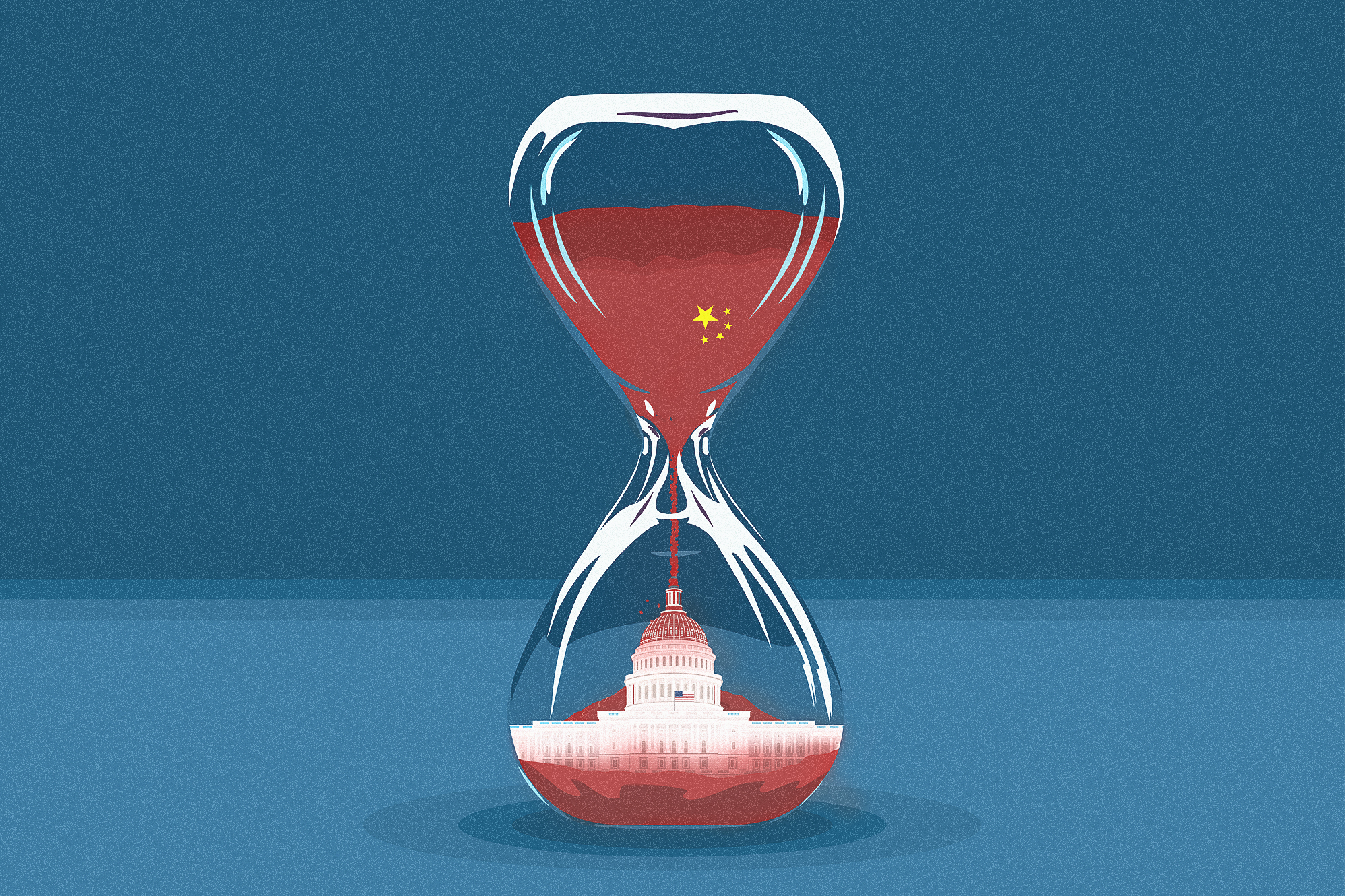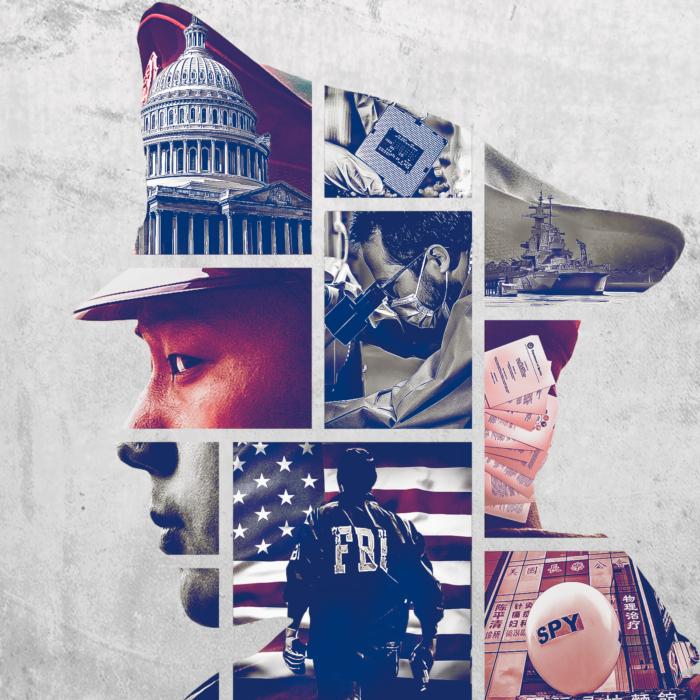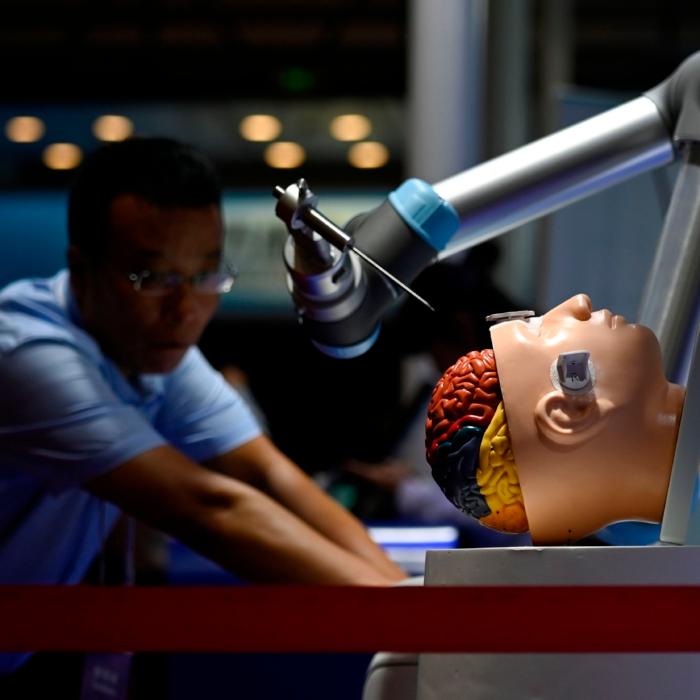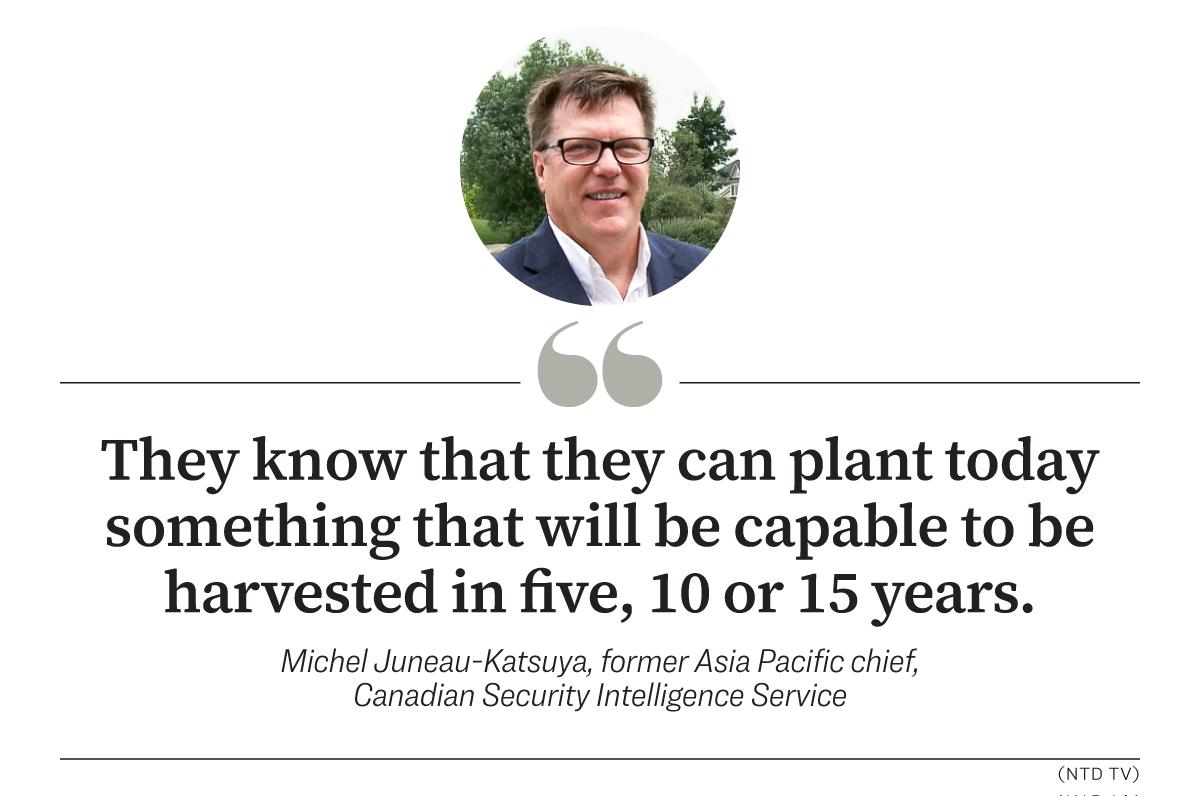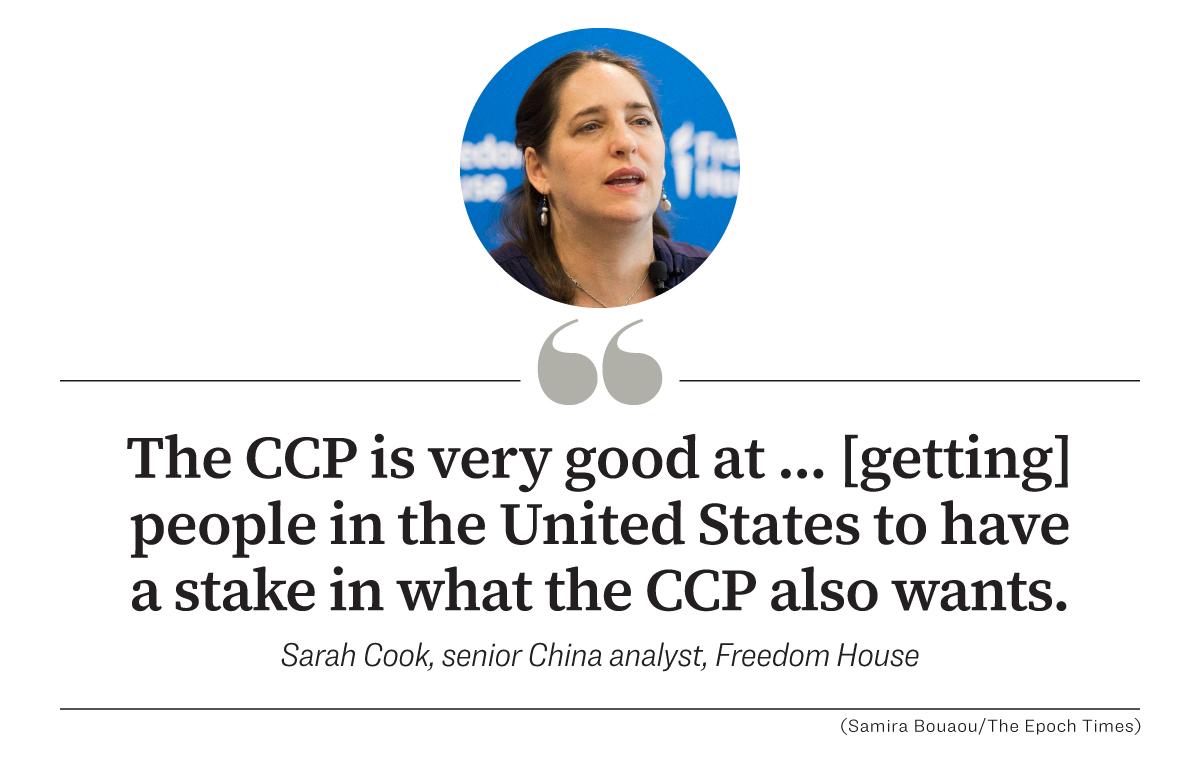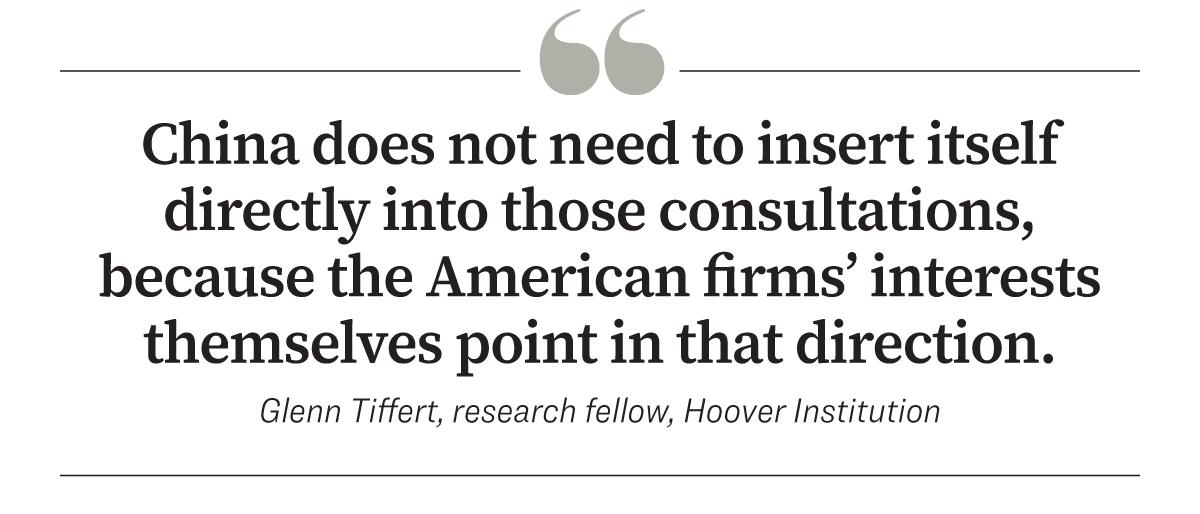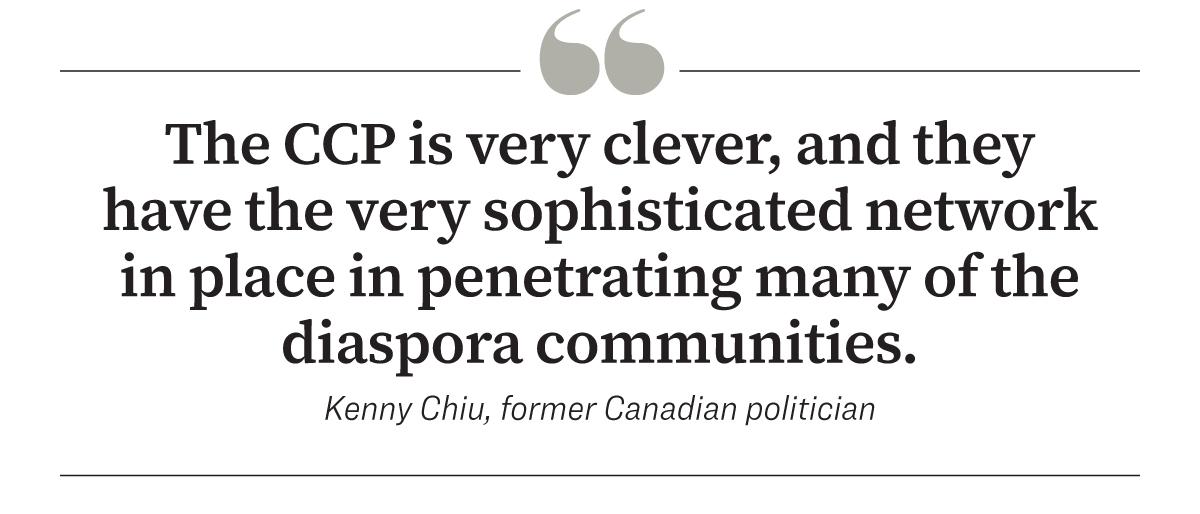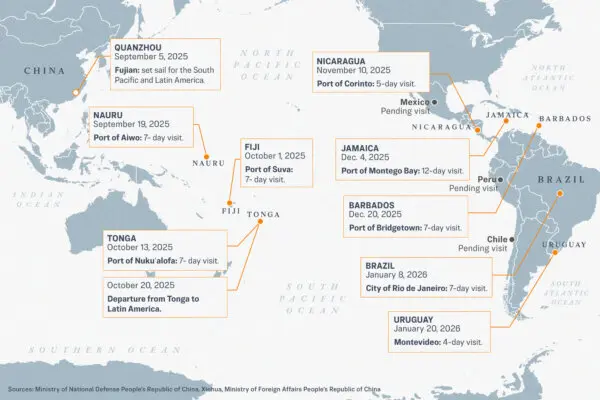As Chinese authorities escorted the senior Federal Reserve official from his Shanghai hotel room, they demanded he “say good things about China” when back in the United States.
The atmosphere was “frightening,” the official, who remained unnamed, recalled to the Fed.
The U.S. official recounted Chinese authorities trying to pry “sensitive, non-public economic data” out of him and insisting that he “advise senior government officials” on sensitive economic issues such as trade tariffs while the United States and China were embroiled in a trade war. They forced him to drink liquor and attempted to make him commit to future meetings to allow them to gather economic intelligence.
Unsettling as it is, the incident was but part of a “long-running and brazen” malicious campaign from China over the course of more than a decade to undermine U.S. economic policy and advance Beijing’s ambition to supplant the United States as the global superpower.
Coercion and threats represent only a sliver of the regime’s toolbox used to target the Western political sphere. A Chinese think tank based in Beijing, in partnering with the state-affiliated Tsinghua University, in 2019 rated White House advisors and U.S. governors by their friendliness to Beijing. The group labeled officials as “friendly,” “ambiguous,” or “hardline” after combing through metrics such as age, work history, public statements, trade activities with China, and length of term.
Time, patience, and thoroughness—these are attributes that Michel Juneau-Katsuya, former Asia Pacific chief at the Canadian Security Intelligence Service in the 1990s, sees in the Chinese regime’s craft of infiltration.
“They’ve been capable to work in a very holistic way,” he told The Epoch Times.
China, he noted, doesn’t have a democratic election process that could displace the leadership from power. “So they know that they can plant today something that will be capable to be harvested in five, 10 or 15 years.”
Sen. Mike Braun (R-Ind.), who has advocated for a tougher stance on China, agreed.
Biding Their Time
Few if any U.S. leaders, from the federal, state, local, tribal, and territorial levels, are immune to the risk of the Chinese regime manipulating them to bolster its hidden agenda, warned the National Counterintelligence and Security Center in July last year.By leveraging relationships with U.S. officials—called “using the local to surround the central” in communist slogan terms—Beijing can pressure Washington to back policy outcomes favorable to the regime, such as deepening bilateral economic ties and tamping down criticism of the regime’s abysmal human rights record.
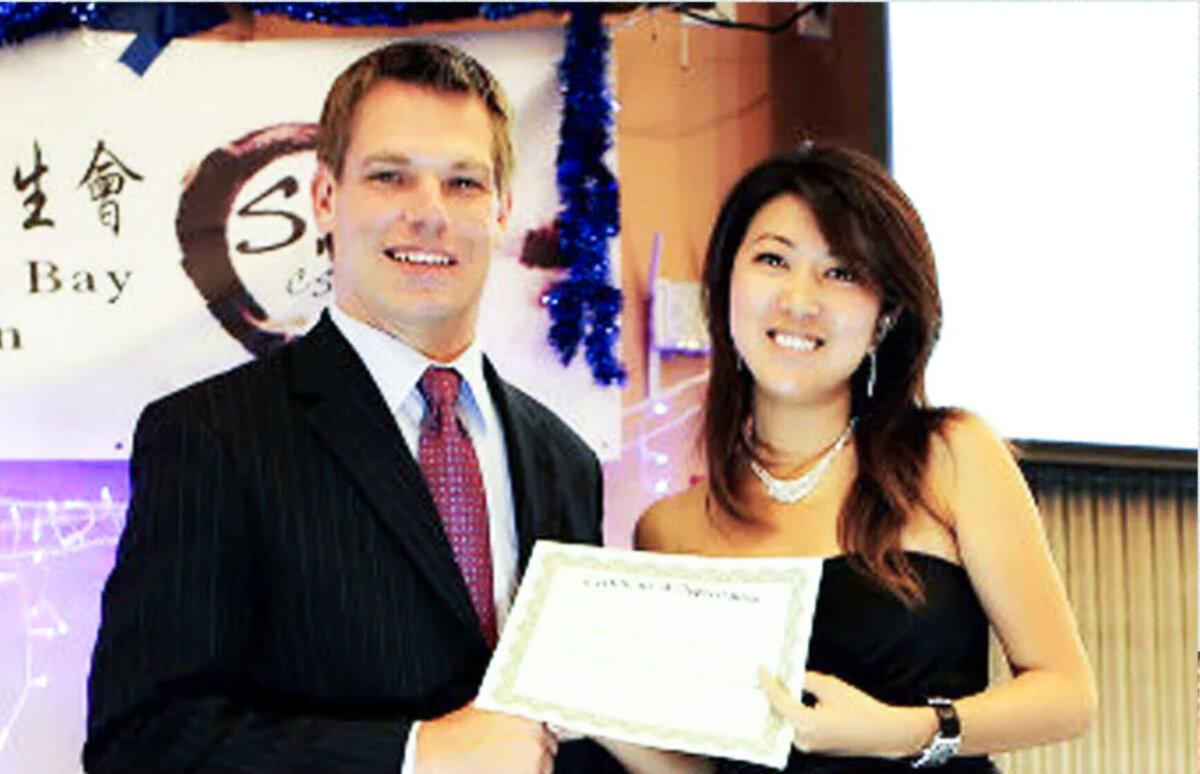
Christine Fang, an alleged Chinese spy working for China’s top intelligence agency, the Ministry of State Security, reportedly used campaign fundraising, networking, and romantic relationships with at least two Midwestern city mayors to gain a footing in their spheres of influence.
Ms. Fang also approached Rep. Eric Swalwell (D-Calif.) when he was a member of the Dublin City Council, raised money for his 2014 reelection campaign, and facilitated an intern’s placement in Mr. Swalwell’s office, according to Axios.
The United Front network, which helps the Party control the Chinese diaspora, also plays a role in co-opting well-placed individuals for Beijing’s interests.
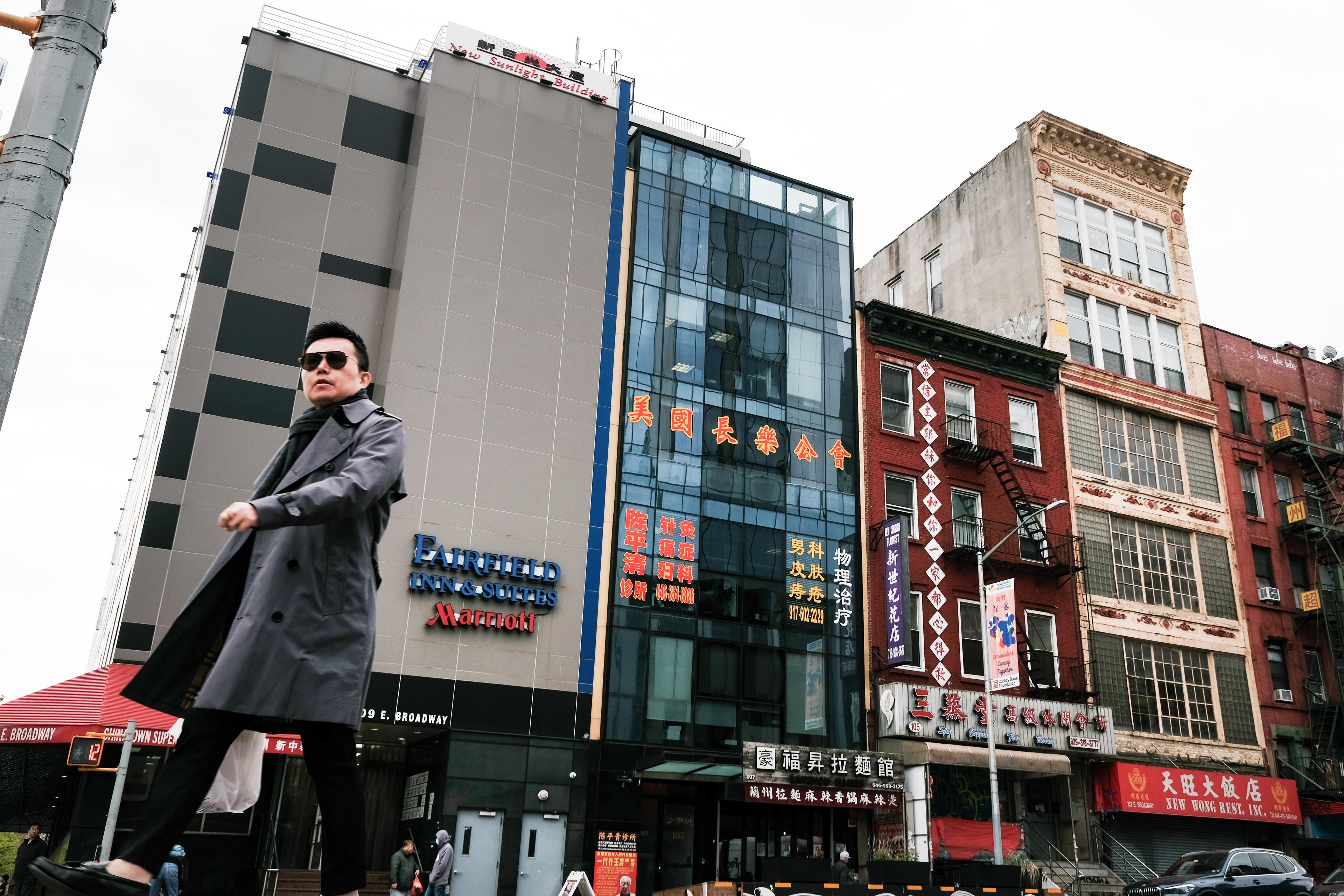
“Local level officials, state officials are just not going to be as aware of or as attuned to some of these influence efforts—they’re just trying to create jobs,” Sarah Cook, a senior China analyst at the Freedom House, told The Epoch Times.
“The CCP is very good at taking advantage of that, to get people to side with them, to get people in the United States to have a stake in what the CCP also wants. Then later, that can be activated to create situations that are more problematic.”
“I think people at the earliest part of that relationship, don’t realize that,” she added.
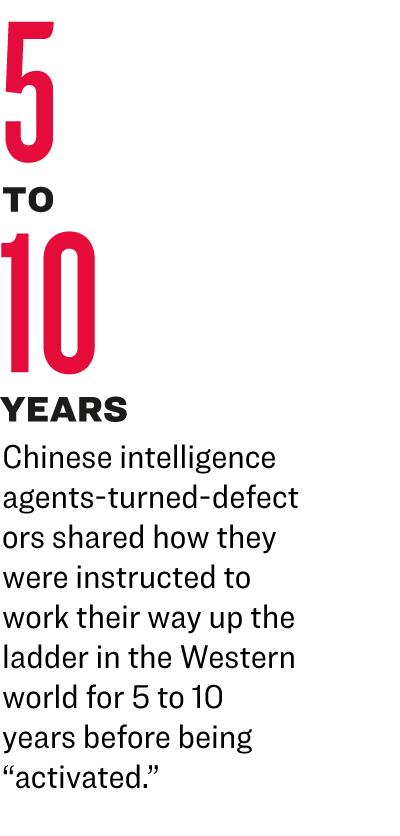
As with Ms. Fang’s case, the Chinese influence operations begin early in the local leaders’ careers.
“They’re very, very patient, they have time on their side. Their determination and their focus is remarkable,” Mr. Juneau-Katsuya said of the regime.
He said that Chinese intelligence officers-turned-defectors had detailed to him how they were instructed to be model citizens in the Western world for five to 10 years, working their way up the ladder in society before being “activated.”
‘Lie in Plain Sight’
Taiwan, Uyghur, Falun Gong, Tiananmen Square. The list of the Chinese Communist Party’s trigger words goes on. And the regime has made it clear that no one—in China or anywhere else—should go against its will.
The email, written from a Gmail account registered under Mr. Zhou, declared the bill “absurd” and claimed the “so-called ‘forced organ harvesting’ in China is a farce.”
Mr. Zhou, in true Beijing fashion, demanded that the United States stop “baseless hype and anti-China moves and stops preceding [sic] this legislation.”
Mr. Smith said the claims in the email were “a big lie in plain sight.”
“The Falun Gong practitioners and the Uyghurs are being killed for their organs, and it’s tens of thousands every single year, as we know,” he told The Epoch Times.
“Perfectly healthy people being put down in a gurney drugged in order to effectuate two to three of their organs being taken out involuntarily—and they kill them—that is murder. That’s crimes against humanity.”
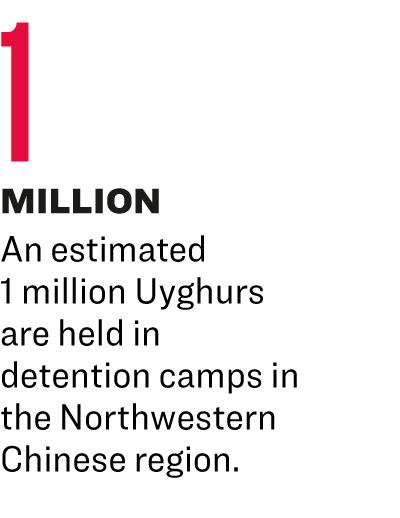
The New Jersey Republican on April 14 wrote to the Chinese embassy requesting a visa to visit Xinjiang, the northwestern Chinese region where an estimated 1 million Uyghurs are being held in detention camps. He hasn’t heard back.
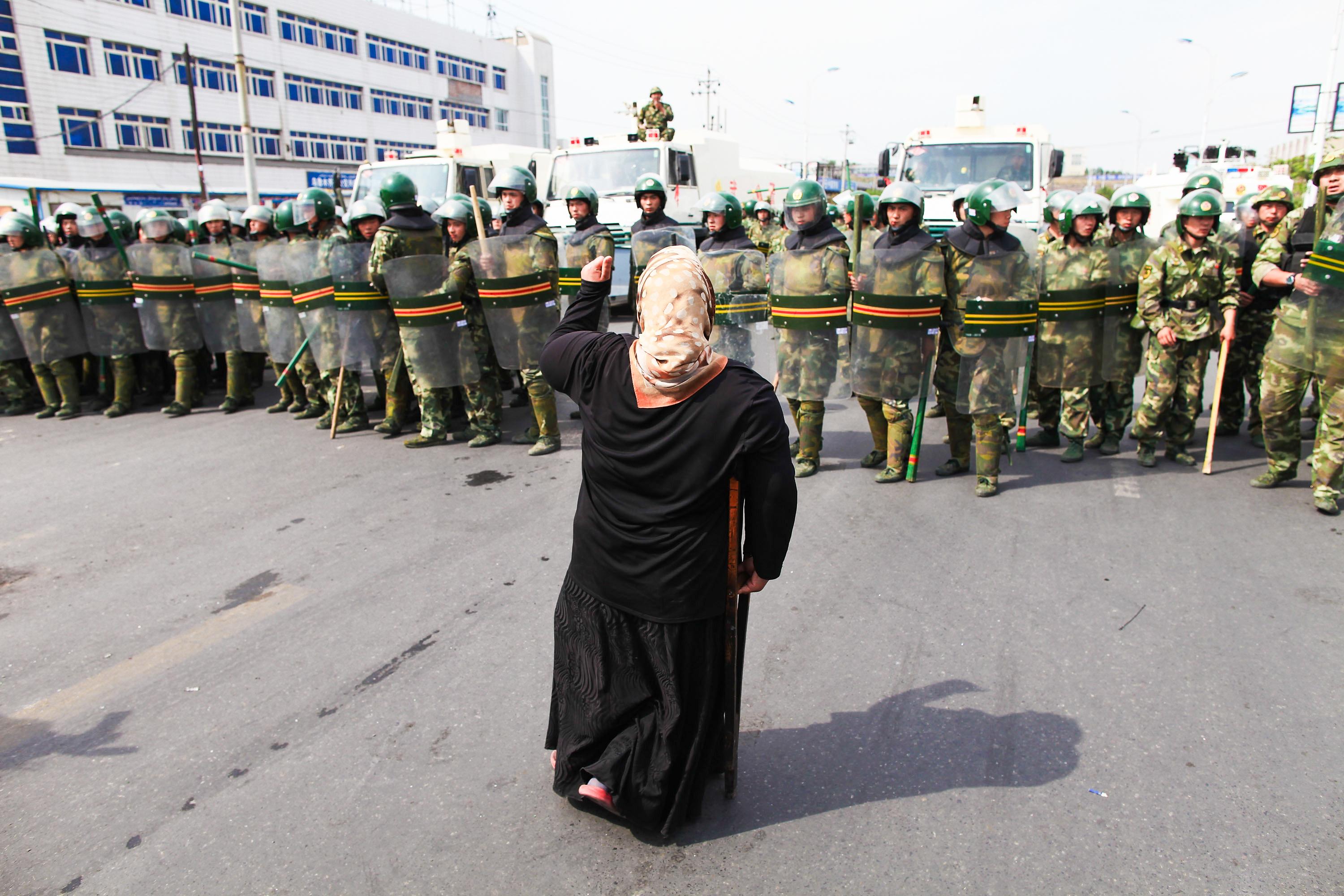
The audacity of the regime in making demands of an elected member of Congress “incensed” Rep. Ashley Hinson (R-Iowa), one of the recipients of the threatening letter.
“Basically, I just said, ‘No, you can’t tell me who I can and can’t meet with and I’m going to go ahead and meet with her,’“ Ms. Hinson told The Epoch Times. ”And that’s what we did.”
“The fact that somebody was bold enough to assume that they could send me an email like that, and threaten and bully me—incredulous.”
“I will not be bullied, my mind is not going to be changed on an email like that, where you are deliberately trying to undermine my ability to do my job.”
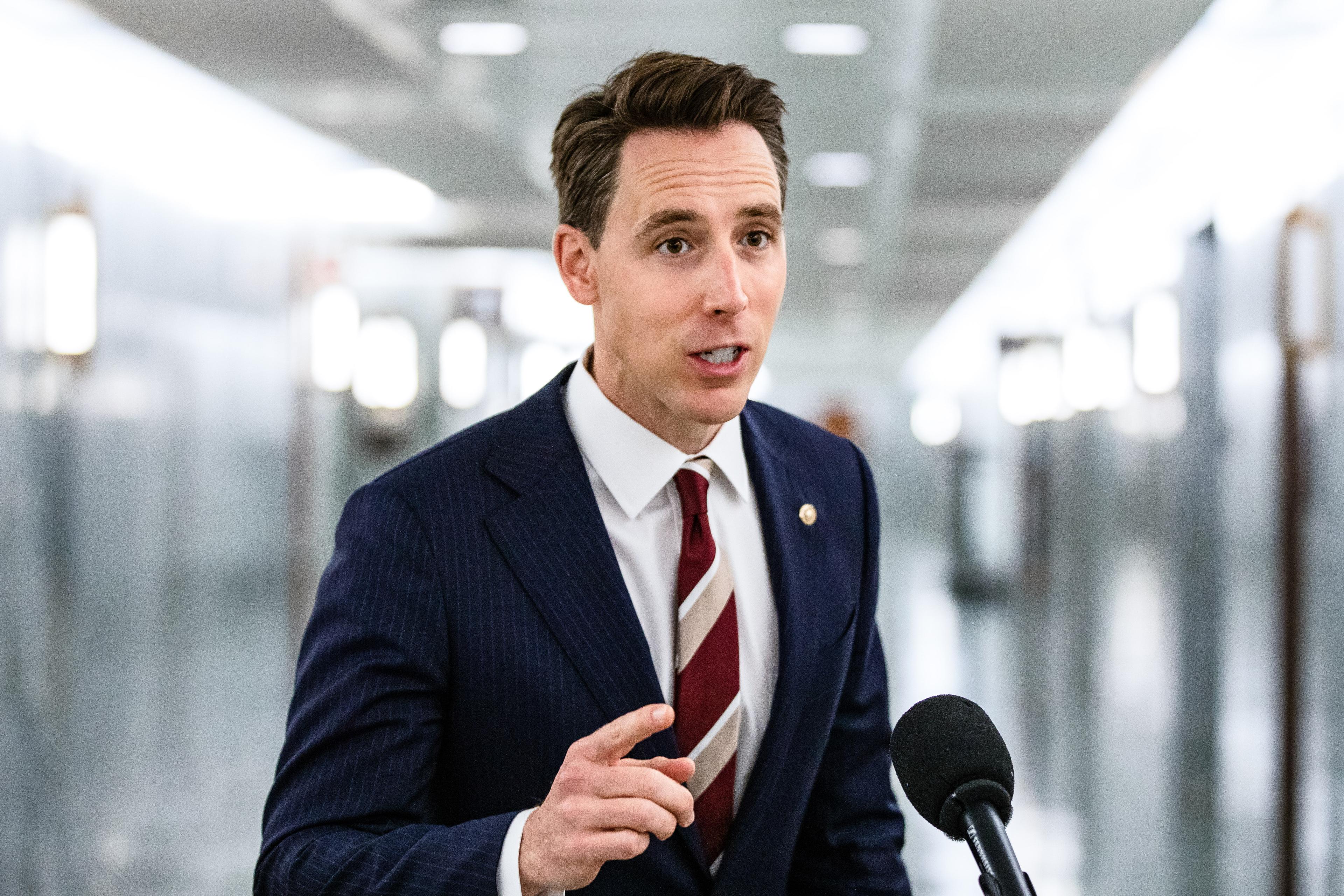
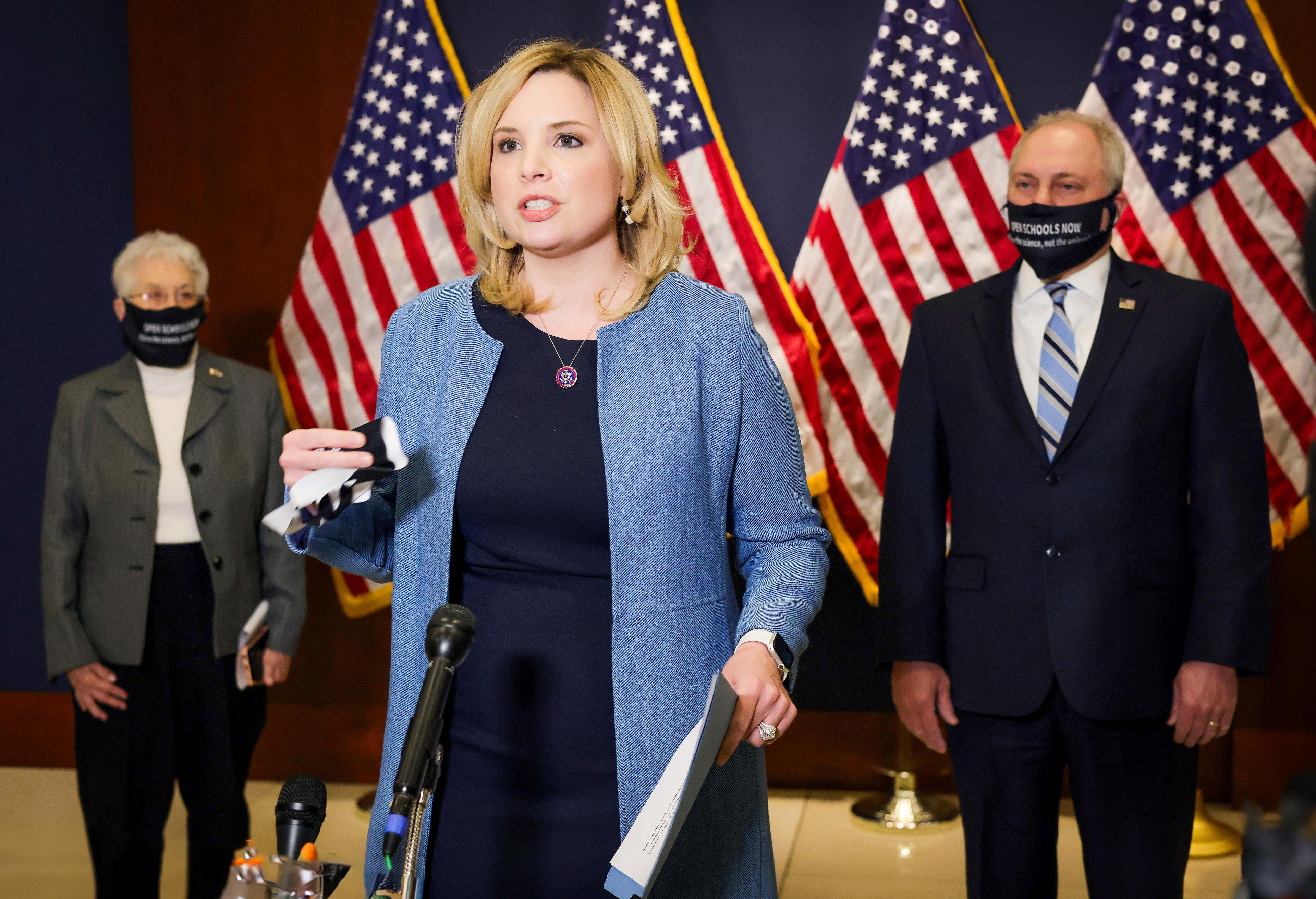
‘Chilling Effect’
Despite receiving backlash, what keeps Beijing’s officials going, according to Ms. Cook, is that although it may not work this time or with some “veteran CCP critics,” it can “make people think twice about a critical action next time.”Those who are not familiar with the Chinese state-directed maneuverings are more vulnerable to the CCP’s bullying, said Ms. Cook, especially if they aren’t aware of how often it happens. Some of the threats voiced are just bluffs, she said.
If Chinese officials “remind” U.S. leaders of the potential economic consequences, someone newer to an elected office or a lawmaker who is introducing a policy action that provokes Beijing may decide to “avoid the controversy” next time, even if they carry through on the current action.
“They may be caught by surprise, and if they are local officials receiving an intimidating letter from a big national and repressive government like China’s, then that’s two entities that aren’t operating at the same level,” she said. “And depending on the situation, they may actually have more to lose in terms of, say, investment in their district.”
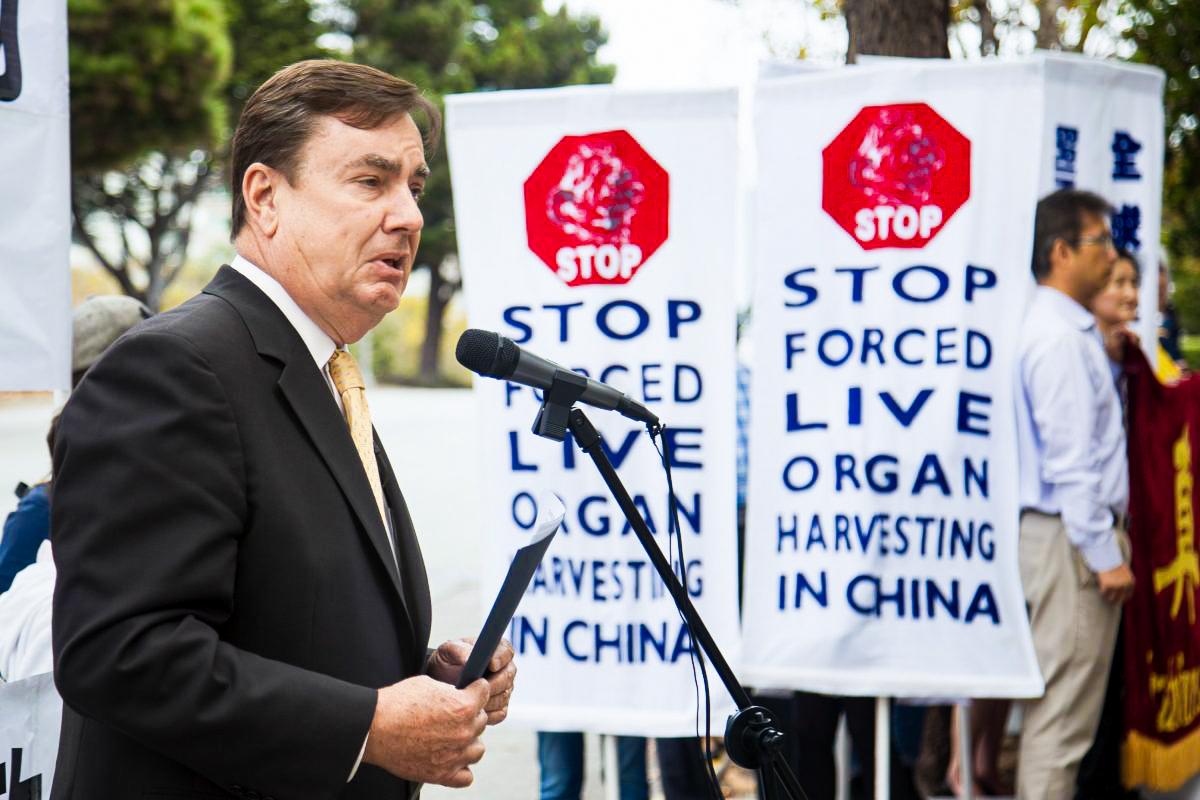
An example occurred in California in 2017 when then-state Sen. Joel Anderson tried to push the state legislature to take a symbolic stance against the Chinese regime’s persecution of Falun Gong.
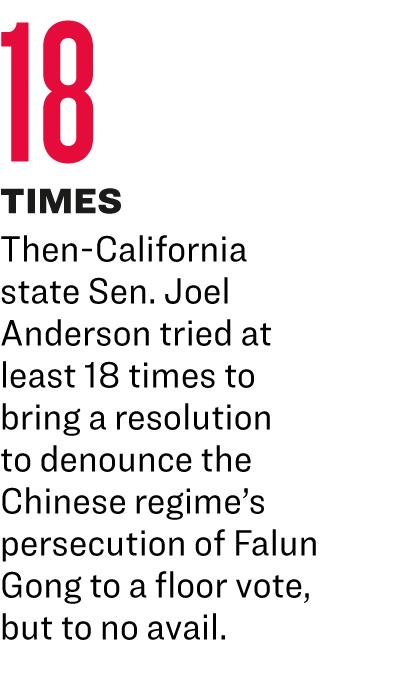
Two days after his resolution unanimously passed through the state’s judiciary committee, a round of letters flew from the Chinese consulate in San Francisco to California state senate members.
Penetrating Deep
The Party’s tactics for gaining influence have become increasingly aggressive over the years. Where money fails, espionage and outright intimidation come in.The regime’s mix of reward and retaliation appears to have paid off to a certain extent.
In the conservative state of Utah, up to 25 lawmakers have routinely taken trips to China every other year since 2007, with Chinese state media featuring their jubilant quotes in order to amplify Beijing’s agenda.
After being approached by a Beijing advocate, another Utah state legislator introduced a resolution in 2020 expressing solidarity with China early in the COVID-19 pandemic. The resolution passed, although the governor declined to sign it.
Asked in September during a Senate intelligence committee hearing whether the Chinese regime has been successful in changing policy outcomes, Glenn Tiffert of the Hoover Institution answered “absolutely yes,” and pointed to Beijing’s successful manipulation of corporate America through economic incentives.
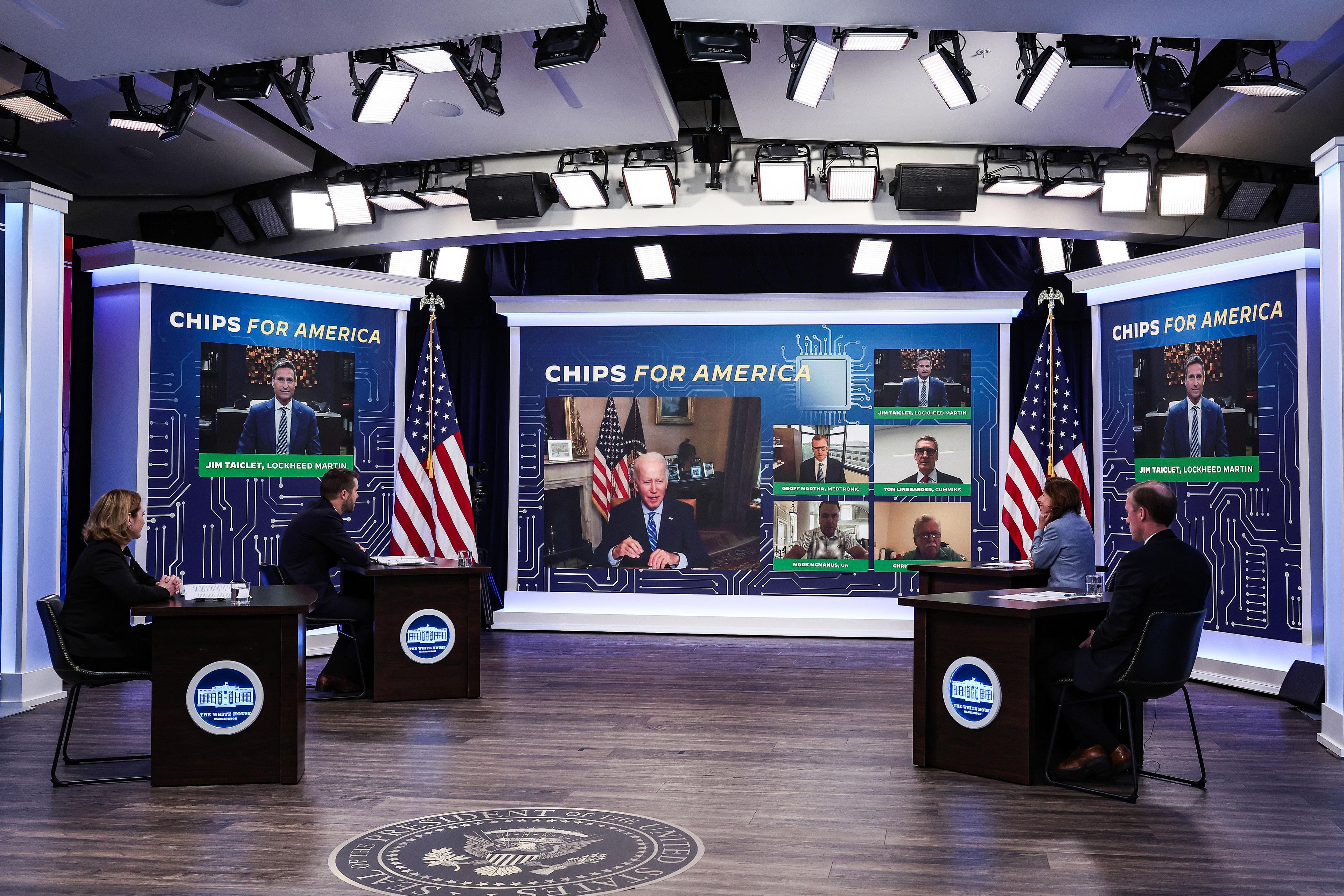
“China does not need to insert itself directly into those consultations, because the American firms’ interests themselves point in that direction,” Mr. Tiffert told the senators.
The incentive factor manifests in other forms too: When Rockville City in Maryland was contemplating a sister city agreement with Taiwan’s Yilan City, Chinese diplomats in Washington dangled investment opportunities in front of Rockville city officials and pressed them to scrap the plan, citing Rockville’s unofficial connection with southeastern Chinese city Jiaxing, Mr. Tiffert noted at the hearing.
“Fortunately, the city stood firm,” he said, but partnerships like this with China have become one of the windows for the Chinese to lay claims on U.S. policy.
And when subtle means don’t work, Beijing doesn’t shy away from overt aggression.
A ‘Sophisticated Network’
To conquer an opponent requires an understanding of where they are weak, and one weakness for the West is democracy—the need to have election cycles to “renew ourselves constantly,” said Mr. Juneau-Katsuya.“Because we renew ourselves, also, we are in the process of constantly seeking approval, seeking support, seeking election votes,” he said. The Chinese “understand it so well” that they have their diplomatic missions infiltrate the local Chinese community, turning it into a bargaining chip to get elected Western officials to do their bidding.
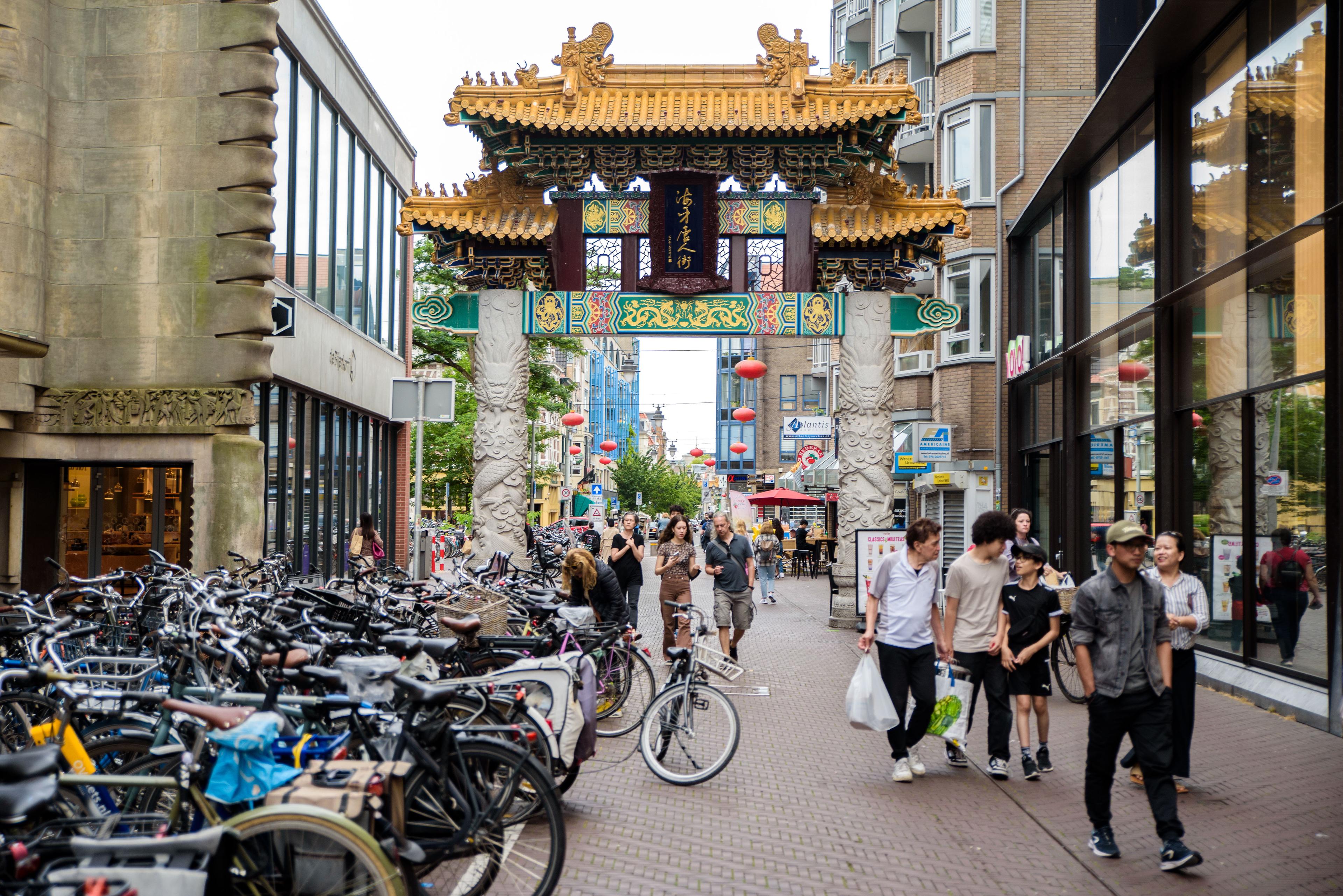
“The CCP is very clever, and they have a very sophisticated network in place in penetrating many of the diaspora communities,” Mr. Chiu told The Epoch Times’s sister media NTD.
The regime also has something else to their advantage: the sheer volume of people.
Mr. Juneau-Katsuya recalls that during the Korean War, with less sophisticated weaponry on hand, the Chinese opted to send wave after wave of people during assaults, until they overwhelmed—and overtook—their opponents. They have applied the same concept to the intelligence front, he said.
‘Across the Board’
The depth of Chinese infiltration globally has largely been in the shadows until recent years.During the first five months this year in Canada, concerns over Chinese foreign interference came into the open as more than 350 witnesses testified in front of four parliamentary committees probing the issue. Mr. Juneau-Katsuya said it was a further indicator of Beijing’s success in compromising “every single level” of political strata in his country.
At the Tiananmen Memorial in New York in September, Rep. Mike Gallagher (R-Wis.), the chairman of the House Select Committee on the Chinese Communist Party, told reporters that “it’s reasonable to assume that all of us in Congress and our staff” are targets for the Ministry of State Security (MSS) and the United Front system.

“We need to be aware of that fact and cognizant of that fact,” he said when asked about the level of vetting of congressional staffers.
“For whatever reason, the MSS doesn’t occupy the same place in people’s imagination or minds that let’s say the KGB did, so it’s hard for people to truly understand the scale and scope of Chinese espionage as a result.”
And because “Hollywood is bought and paid for by China,” in many cases, there are no movies helping put the issue into perspective, he said.
Tackling a ‘Monster’
Chinese embassy officials haven’t contacted Ms. Hinson, also a member of the House China Committee, since her April meeting with Taiwan’s president.“I think they know I’m not going to roll over,” she said. But Chinese political meddling, she said, is “alive and well here in the United States, and it’s our job as a committee to go on offense.”
“If they come at me again, I’m ready,” she said. “We need to put forth the best policy package possible without any fear of influence by the CCP.”
In a way, Mr. Juneau-Katsuya sees the task of unmasking the covert Chinese operations as equivalent to trying to tackle a “monster” well-fed by the West that’s now “bigger than us” and “with tentacles everywhere.”
It’s “not an easy job,” he said. But “the genie is out of the bottle and cannot be returned,” and with Western countries binding together, he believes there will be a change—albeit it will take time.
“They are formidable opponents and they’ve been at it for decades now,” he said of Beijing. “They’re subtle, they’re everywhere. So it'll take a while before we succeed in regaining control.”
